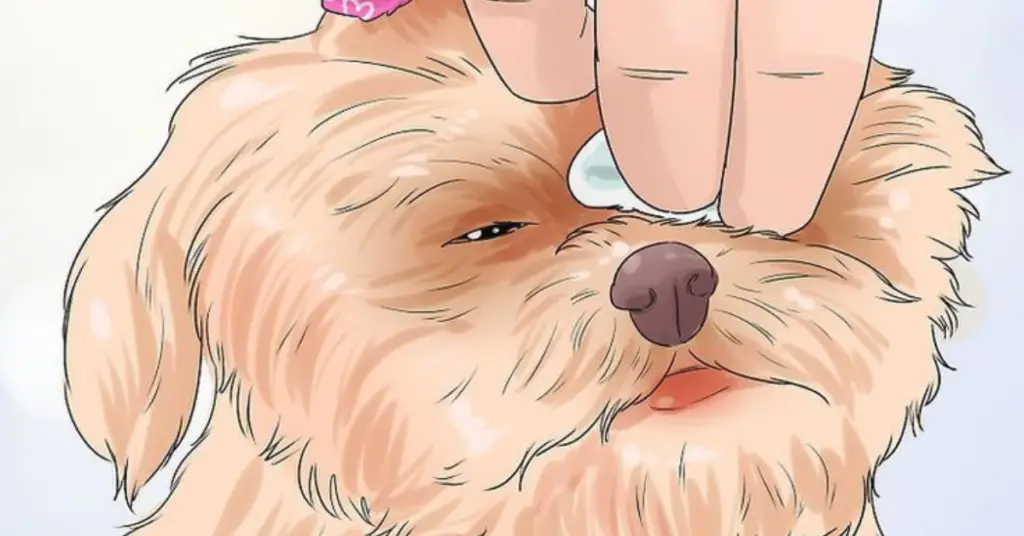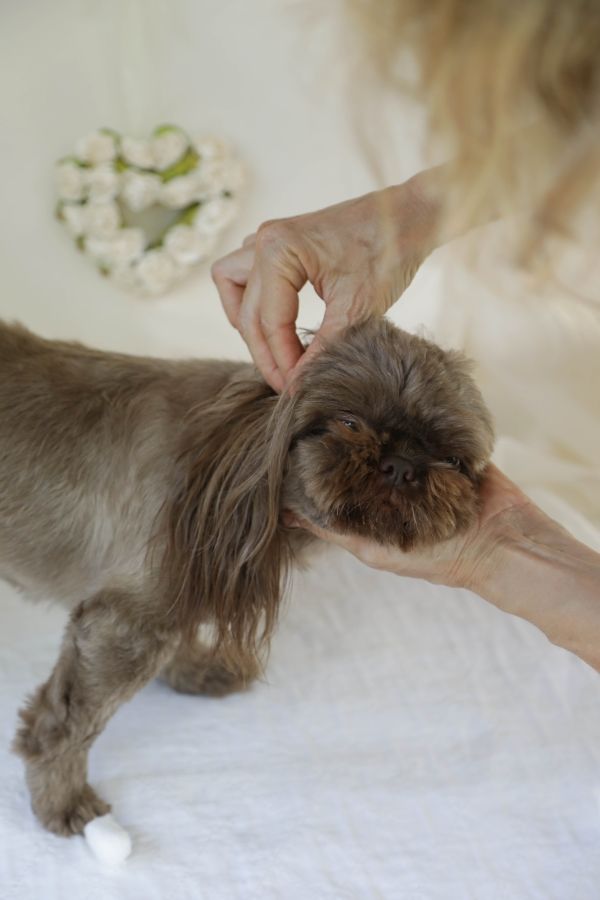
Shih Tzus are adorable companions known for their affectionate nature and distinctive appearance. However, like all breeds, they can be prone to allergies that affect their health and comfort. Understanding these allergies and how to manage them is crucial for ensuring your Shih Tzu leads a happy, healthy life. In this comprehensive guide, we’ll explore the common allergens that affect Shih Tzus, signs to watch for, effective management strategies, and more.
Common Allergens for Shih Tzus

Shih Tzus can develop allergies to various substances, including pollen, mold, dust mites, and certain foods. Pollen allergies, also known as seasonal allergies or hay fever, are common among dogs, including Shih Tzus. These allergies typically manifest during specific times of the year when pollen levels are high.
Mold allergies can occur when your Shih Tzu inhales mold spores or comes into contact with moldy environments. Dust mite allergies are another concern, as these microscopic creatures thrive in household dust, bedding, and upholstery. Food allergies can also affect Shih Tzus, causing symptoms such as itching, gastrointestinal upset, and skin irritation.

Signs and Symptoms of Allergies in Shih Tzus
Recognizing the signs of allergies in your Shih Tzu is essential for early intervention and treatment. Common symptoms include excessive itching, scratching, licking, and chewing, particularly around the paws, face, ears, and belly. Skin rashes, redness, and inflammation are often present, along with hair loss and recurrent ear infections.
Respiratory symptoms such as sneezing, coughing, and wheezing may indicate pollen or mold allergies. Gastrointestinal issues like vomiting and diarrhea can point to food allergies. Behavioral changes such as restlessness or irritability might also occur due to discomfort caused by allergies.

Diagnosing Shih Tzu Allergies
Diagnosing allergies in Shih Tzus can be challenging due to overlapping symptoms and potential triggers. Your veterinarian will typically perform a thorough physical examination and review your dog’s medical history. Allergy testing, including skin tests and blood tests, may be conducted to identify specific allergens triggering your Shih Tzu’s symptoms.
Food elimination trials can help determine if food allergies are the culprit. These trials involve feeding your Shih Tzu a hypoallergenic diet under veterinary supervision to identify and eliminate problematic ingredients.
Managing Shih Tzu Allergies

Effectively managing your Shih Tzu’s allergies involves a multifaceted approach aimed at reducing exposure to allergens and alleviating symptoms.
1. Environmental Control
Minimize exposure to allergens by regularly cleaning your home, particularly areas where your Shih Tzu spends most of their time. Use air purifiers to reduce airborne allergens like pollen and dust mites. Wash bedding and toys frequently in hot water to remove allergens. Limit outdoor exposure during peak pollen seasons.
2. Nutritional Management

If your Shih Tzu has food allergies, work with your veterinarian to identify and eliminate trigger ingredients from their diet. Switch to hypoallergenic or limited-ingredient diets that reduce the risk of allergic reactions. Avoid feeding table scraps and treats that may contain allergens.
3. Regular Grooming
Regular grooming is essential for managing Shih Tzu allergies. Bathe your dog regularly using a gentle, hypoallergenic shampoo to remove allergens from their coat and skin. Brush your Shih Tzu frequently to prevent matting and remove pollen or dust trapped in their fur.
4. Medication and Treatment

Your veterinarian may prescribe medications to alleviate symptoms and manage allergic reactions. Antihistamines can help reduce itching and inflammation. Topical treatments such as sprays or ointments may soothe irritated skin. In severe cases, corticosteroids or immunosuppressive drugs may be necessary, but these should be used under veterinary guidance due to potential side effects.
5. Allergy Immunotherapy
Allergy immunotherapy, often referred to as allergy shots or sublingual drops, may be recommended for Shih Tzus with severe allergies. These treatments involve administering small doses of allergens to desensitize your dog’s immune system over time, reducing their sensitivity to allergens.

Prevention of Shih Tzu Allergies
While some allergies in Shih Tzus may be genetic or unavoidable, taking preventive measures can help minimize their impact on your dog’s health. Maintain regular veterinary check-ups to monitor your Shih Tzu’s overall health and detect allergies early. Follow your veterinarian’s recommendations for diet, grooming, and environmental control to reduce allergen exposure.
Conclusion
Understanding and managing allergies in your Shih Tzu requires diligence and a proactive approach. By identifying common allergens, recognizing symptoms early, and implementing effective management strategies, you can help your Shih Tzu live comfortably and happily despite their allergies. Consult with your veterinarian for personalized advice and treatment options tailored to your Shih Tzu’s specific needs. With proper care and attention, you can ensure your Shih Tzu enjoys a high quality of life free from the discomfort of allergies.



